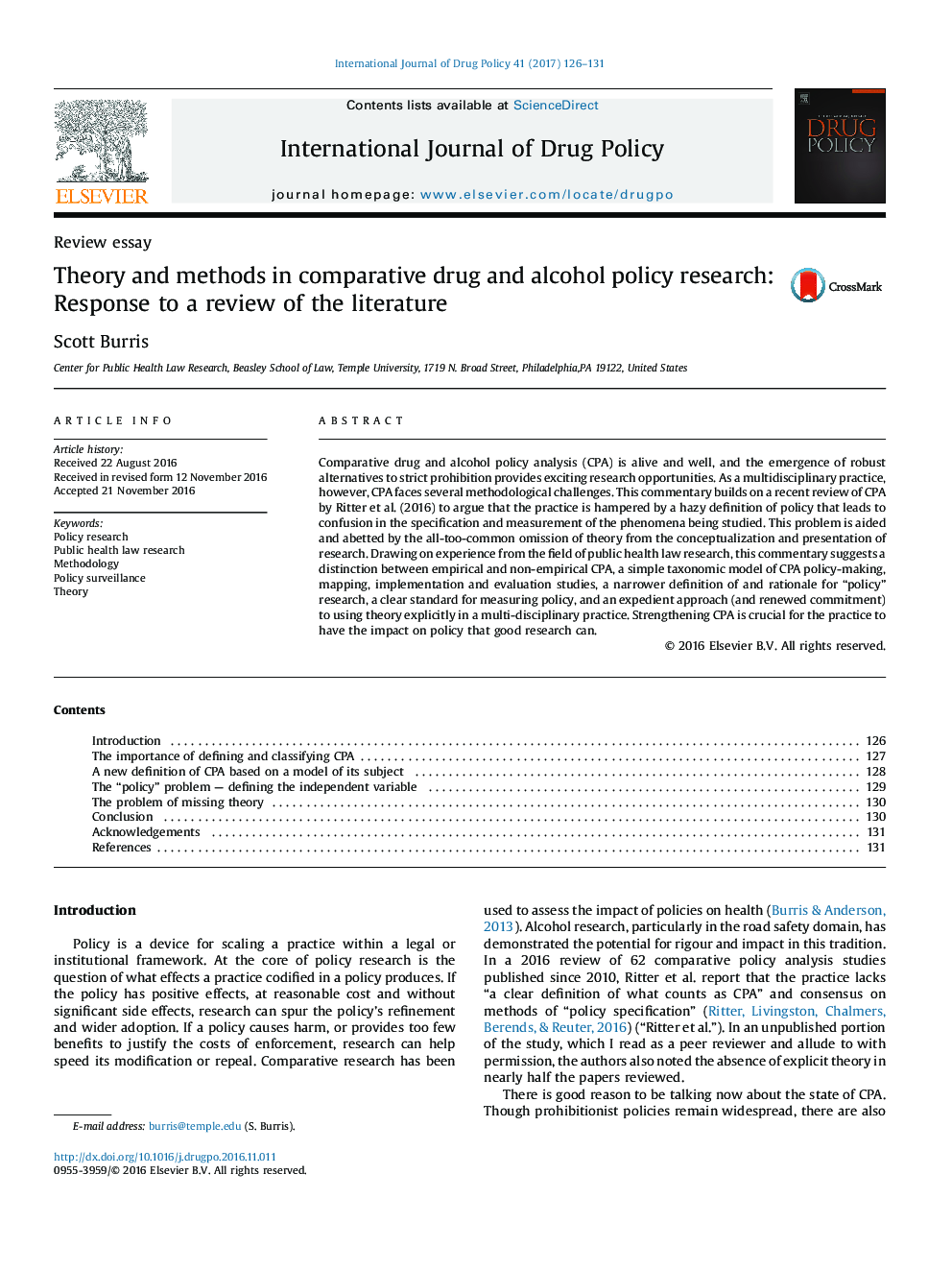| Article ID | Journal | Published Year | Pages | File Type |
|---|---|---|---|---|
| 5120714 | International Journal of Drug Policy | 2017 | 6 Pages |
Comparative drug and alcohol policy analysis (CPA) is alive and well, and the emergence of robust alternatives to strict prohibition provides exciting research opportunities. As a multidisciplinary practice, however, CPA faces several methodological challenges. This commentary builds on a recent review of CPA by Ritter et al. (2016) to argue that the practice is hampered by a hazy definition of policy that leads to confusion in the specification and measurement of the phenomena being studied. This problem is aided and abetted by the all-too-common omission of theory from the conceptualization and presentation of research. Drawing on experience from the field of public health law research, this commentary suggests a distinction between empirical and non-empirical CPA, a simple taxonomic model of CPA policy-making, mapping, implementation and evaluation studies, a narrower definition of and rationale for “policy” research, a clear standard for measuring policy, and an expedient approach (and renewed commitment) to using theory explicitly in a multi-disciplinary practice. Strengthening CPA is crucial for the practice to have the impact on policy that good research can.
